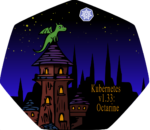
Rancher Labs has announced a new project designed for resource-constrained environments and low-touch operations. K3s is an open-source lightweight Kubernetes distribution built for the edge.
According to the company, it can be used for ARM, IoT and CI edge solutions. “The work for k3s started as a component of Rio, an experimental project we started last year. We started seeing real demand for Kubernetes on the edge and a growing interest in k3s itself, so we decided to pull it out of Rio and make it a first-class open source project,” Darren Shepherd, co-founder and chief architect for Rancher Labs, wrote in a post.
Rio was designed for apps, serverless and the service mesh. Throughout the project, the team worked to come up with a way to reduce its memory footprint. To do so, they decided to see what parts of Kubernetes could be removed to make it smaller. The team started removing features they didn’t need and found Rio to be the simplest way to run a Kubernetes cluster, realized the need for an edge solution and found that customers wanted lighter weight version of Kubernetes.
“Based on these observations we realized that k3s should be a top-level Rancher open source project. Initially, we focused on just the features that Rio needed but we wanted to increase the scope to be a fully compliant Kubernetes cluster. As we looked at what we had done to decrease the size of Kubernetes we found out that the biggest impact was removing the legacy and alpha functionality. In the end, we now have k3s which is a fully certified Kubernetes distribution that runs in about one fourth the memory of vanilla Kubernetes,” Shepherd wrote.
In addition, k3s is packaged as a single binary and is about 40 megabytes in size, the company explained. It continues to include everything necessary to run Kubernetes, such as the container runtime and important host utilities.
The team also noted k3s removes legacy and non-default features, alpha features, in-tree cloud provides and in-tree storage drives; and adds SQLite support, TLS management and containerd, CoreDNS, and Flannel.
More information is available here.








